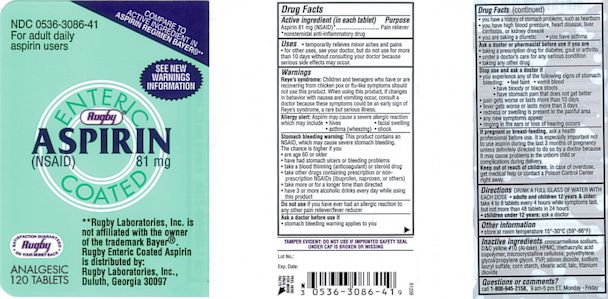Aspirin Recalled Over Acetaminophen Mix-Up

About 16,440 bottles of aspirin have been recalled because at least one bottle actually contained acetaminophen. (Credit: Food and Drug Administration)
A nationwide baby aspirin recall is underway after a CVS pharmacist discovered a 120-pill bottle of baby aspirin was filled with acetaminophen pills.
Advance Pharmaceutical Inc. voluntarily recalled 16,440 bottles of pills labeled to contain 81-mg aspirin pills because at least one bottle in the lot contained 500-mg acetaminophen pills, according to Advance Pharmaceutical spokesman Abu Amanatullah. No known injuries have been reported.
Read about the frozen berry recall over hepatitis fears.
"That could put some people into liver failure," said Dr. Joe Odin, an associate professor at Mount Sinai Hospital in New York who does research in drug-induced liver injury.
He said overdosing on acetaminophen, commonly sold under the brand name Tylenol, is the No. 1 method of suicide in the United Kingdom. In the United States, patients usually overdose on acetaminophen by accident because they don't realize one of their prescriptions - such as sleeping pills - already contains it.
"It's not an uncommon overdose," said Dr. Corey Slovis, who heads the department of emergent medicine at Vanderbilt University Medical Center in Tennessee. "We hate Tylenol overdose because they're the silent overdoses."
Slovis said patients who overdose on acetaminophen often don't feel sick right away, unless they've taken a massive dose that induces vomiting within six hours. Instead, many patients who overdose on acetaminophen don't see a doctor for more than two days because they feel fine at first. When they finally get to Slovis, they're often jaundiced and experiencing the early signs of liver failure.
As such, this kind of overdose could result in liver failure, the need for a transplant or death, Slovis said.
If doctors catch the overdose early, they can save patients by pumping their stomachs full of charcoal to deactivate the acetaminophen, Odin said. Intravenous medications can also reverse the damage.
But most patients who take baby aspirin do it because it keeps blood platelets from sticking together, said Dr. Sripal Bangalore, a cardiologist at NYU Langone Medical Center. As such, baby aspirin is crucial for patients who have undergone stent surgery.
"Aspirin and Tylenol are not the same," he said, emphasizing that Tylenol doesn't have anti-clotting properties. "Most times, the patient will have signs and symptoms of a heart attack.
If stent patients are unwittingly taking Tylenol instead of aspirin, they run the risk of stent thrombosis, meaning the stent becomes blocked, and they could die, he said.
"It's pretty dangerous," Bangalore said. "Once a stent closes, there are studies to show that the risk of dying from it is pretty large."
Other patients take baby aspirin because it's thought to reduce the risk of heart attack. But Bangalore said he's less worried about that because the benefits are debatable.